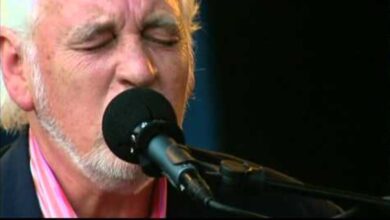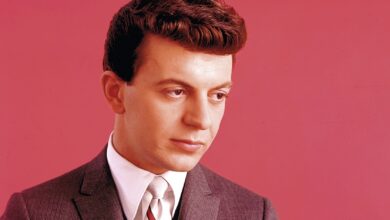The Troggs’ “Wild Thing” Unleashes a Primal Rock Sound and Shakes Up Pop Culture in 1966
In 1966, as the music world bent under the weight of experimentation, elaborate productions, and social commentary, an unassuming British band delivered a song that stripped rock down to its barest essentials. “Wild Thing” by The Troggs didn’t need lush harmonies or poetic metaphors to make its point—it growled, it pulsed, and it declared itself with a rawness that would leave an indelible mark on rock history. The song climbed to No. 1 on the Billboard Hot 100 in July of that year and became an instant sensation. Its primal simplicity, fused with suggestive lyrics and a fuzzed-out ocarina solo, made it both wildly popular and controversial. Few records better captured the hormonal surge and rebellious attitude of 1960s youth than this two-and-a-half-minute blast of garage rock.
The Troggs were formed in Andover, England, and initially operated under the name The Troglodytes—a nod to their rugged, no-frills sound. Consisting of lead singer Reg Presley, guitarist Chris Britton, bassist Pete Staples, and drummer Ronnie Bond, the group had no illusions about high art. They weren’t trying to be The Beatles or The Stones; they wanted to make music that you could shout along to, stomp your feet to, and play loud. Presley’s gritty baritone and the band’s punchy arrangements distinguished them from the more polished British acts of the time, lending their music a sense of unvarnished urgency that proved contagious.
The origins of “Wild Thing” trace back to an American songwriter named Chip Taylor (brother of actor Jon Voight), who originally penned the tune for the New York City-based group The Wild Ones in 1965. Their version, however, lacked bite and largely faded into obscurity. When The Troggs’ manager heard it, he saw potential in the song’s structure and suggested the band record their own version. What The Troggs did with Taylor’s composition transformed it from a curious pop number into a rock ‘n’ roll declaration. With minimal chord changes, raspy vocals, and a swinging beat, they tapped into something elemental—what Presley would later call “caveman music.”
Recorded in a single take at Regent Sound Studios in London, “Wild Thing” is a masterclass in economy. Produced by Larry Page, the track employed just a few basic elements: sludgy guitar riffs, primitive percussion, a slow, sexual vocal delivery, and—perhaps most memorably—an ocarina solo in the bridge, which gave the song an eerie, animalistic howl. Reg Presley’s voice is what sells it, though—half sneer, half seduction. His delivery of the line “You make my heart sing” is almost ironic in its flatness, setting up the explosive payoff of the song’s titular phrase. The band’s restraint, rather than complexity, became its power.
The song was released in the U.K. in April 1966 and quickly made its way across the Atlantic. Though it only reached No. 2 in the band’s native Britain, it hit No. 1 in the U.S., knocking Frank Sinatra’s “Strangers in the Night” from the top spot. This chart-topping success was remarkable not only because of the song’s roughness but because of its sheer audacity—its overtly sexual tone, rough-hewn style, and unrefined vocals challenged the polished pop dominating American airwaves. It stayed in the Top 10 for several weeks and was a consistent seller throughout the year, propelling The Troggs into the global spotlight.
“Wild Thing” arrived at a time when cultural norms were being shattered. The song’s raw, almost primal expression of desire gave voice to a generation increasingly unashamed of its impulses. It was banned on some U.S. radio stations and deemed vulgar by certain critics, which only increased its appeal. In many ways, it was proto-punk before punk had a name—an anthem for kids who didn’t fit into the psychedelic or folk molds. With just three chords and a lascivious smirk, The Troggs opened the door for future generations of musicians to embrace simplicity, grit, and attitude over polish and propriety.
The hit gave The Troggs international visibility, opening the door to American tours, late-night television appearances, and several follow-up singles, including “With a Girl Like You” and “Love Is All Around.” While none matched the chart dominance of “Wild Thing,” the song’s success gave the band a strong foothold during the British Invasion. It also typecast them as purveyors of raw, straightforward rock, a brand that would remain both a blessing and a curse throughout their career. Reg Presley, in particular, gained a cult following for his gruff charm and unabashed stage presence.
More than just a single success, “Wild Thing” helped shape an entire genre. Its stripped-down production and brash delivery influenced garage bands across the U.S., becoming a blueprint for acts like The Sonics and later, The Ramones. In fact, Jimi Hendrix famously covered the song at the Monterey Pop Festival in 1967, ending his explosive performance by setting his guitar on fire—a gesture that forever tied “Wild Thing” to rock’s more extreme and theatrical future. Hendrix’s interpretation, sensual and chaotic, reimagined the song as a vehicle for expression and destruction.
Over the years, “Wild Thing” has been covered by a wide variety of artists, from punk to country to novelty acts. Fancy, X, and Sam Kinison all put their own spin on it, but none matched the original’s raw magnetism. Each rendition, however, confirmed the song’s universal appeal—it could be humorous, dangerous, or nostalgic depending on the performer, but it always carried that underlying throb of rebellion. It became a kind of litmus test: if you could make “Wild Thing” your own, you were tapping into something primal and enduring.
When “Wild Thing” hit, it wasn’t just The Troggs’ music that changed—their lives did, too. Presley, a former bricklayer, suddenly found himself on magazine covers and sharing stages with some of the biggest names in rock. Yet the band never lost their working-class ethos, a trait that helped them endure the ups and downs of the music business. In interviews, Presley would often joke about the band’s limited musicianship, but their humility only made their success more remarkable.
Even decades after its release, the song’s legacy is secure. It appears on countless “Greatest Songs of All Time” lists, including those by Rolling Stone and the Rock and Roll Hall of Fame. It’s used in films, commercials, and sports arenas, often as shorthand for untamed energy or adolescent mischief. The riff alone is enough to get a crowd moving. It remains one of rock’s most recognizable anthems, a song that transcended its time to become part of the genre’s DNA.
“Wild Thing” also helped redefine what a hit could sound like. It wasn’t polished or intricate—it was raw, immediate, and alive. That philosophy would inspire countless acts in the coming decades, from the garage rock revival of the early 2000s to punk, grunge, and indie rock. It reminded the industry that you didn’t need virtuosity or a wall of sound to make a statement. Sometimes, all you needed was three chords, a voice that believed what it was saying, and a bit of nerve.
Following his retirement from touring in the early 2000s, Reg Presley focused on his other passion—crop circles and paranormal research—earning him both ridicule and admiration for his eccentricity. He passed away in 2013, but not before The Troggs enjoyed several resurgences in popularity, especially in the U.S. underground rock scene. His voice and presence, preserved forever in “Wild Thing,” remain a monument to rock’s wild heart.
In the end, “Wild Thing” didn’t just top the charts—it cracked the veneer of pop music at a moment when it was ripe for disruption. It reminded listeners that music could still be visceral, unruly, and fun. It made the world sing, even if off-key, and shout that they too could be wild. For The Troggs, it was lightning in a bottle—and for the world, it was a shockwave that still echoes today.



